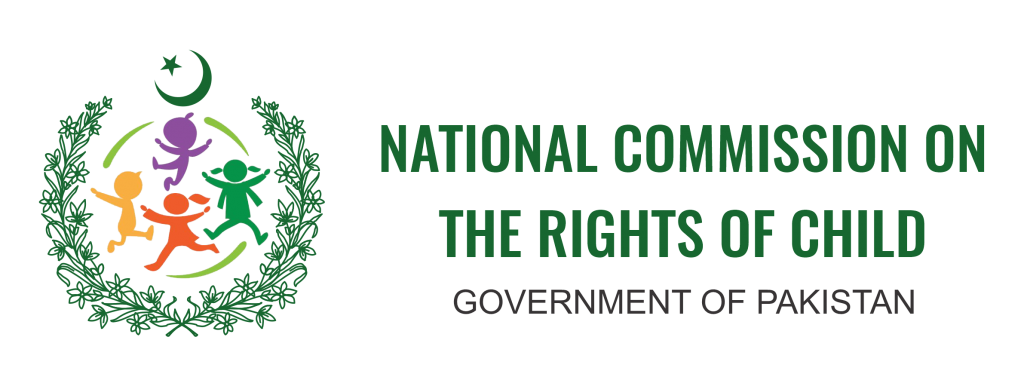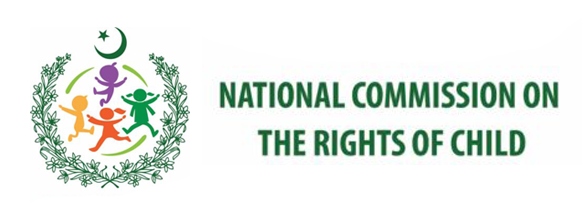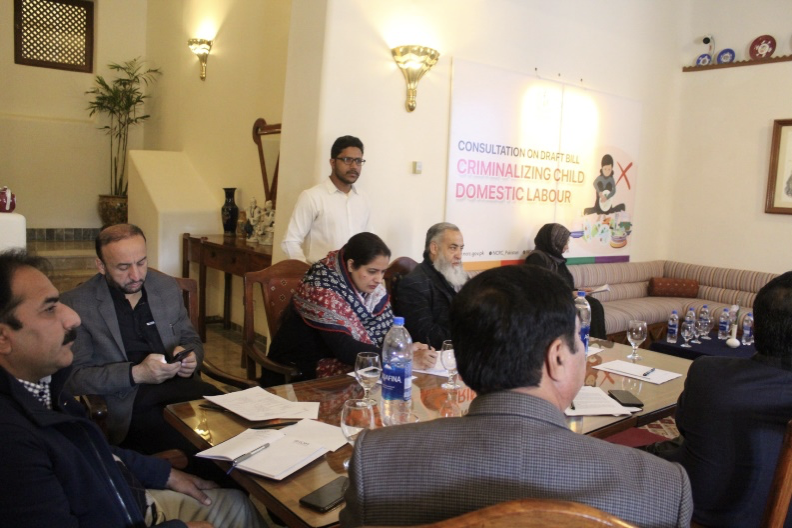Quetta, [2 January 2024]
The National Commission on the Rights of the Child (NCRC) commenced 3rd consultation in Balochistan aimed at discussing the Prohibition of Child Domestic Labour Bill 2024 with key stakeholders.
The Prohibition of Child Domestic Labour Bill 2024 seeks to instigate transformative change by reinforcing legal measures against those involved in engaging children in domestic labor. By classifying Child Domestic Labour (CDL) as a non-compoundable, non-bailable, and cognizable offense, the NCRC underscores its commitment to prioritizing the rights and well-being of children.
This proposed bill intends to amend the Pakistan Penal Code, 1860, and the Code of Criminal Procedure, 1898, criminalizing CDL and eliminating this widespread menace. Titled the Criminal Amendment (Prohibition of Child Domestic Labor) Bill, 2024, it signifies a dedicated effort to protect the rights and dignity of children across Pakistan.
The bill proposes the addition of a new section, 374-A, to the Pakistan Penal Code, 1860, specifically addressing child domestic labor. This section criminalizes the employment, recruitment, harboring, transportation, or provision of a child below the age of eighteen years for domestic labor, with penalties including imprisonment ranging from two to seven years and a fine not less than five hundred thousand rupees. The offenses related to child domestic labor are categorized as non-bailable, non-compoundable, and cognizable.
Embarking on the path toward widespread societal change, the NCRC has outlined a series of consultations at the provincial level to refine and strengthen the proposed bill. The inaugural consultations took place in Peshawar on December 14th and another in Lahore on 20th December 2023, and another in Quetta signifies stride in fostering collaboration with key stakeholders, including government representatives, civil society organizations, and experts in child rights.
Recognizing the importance of collective input and expertise in shaping effective legislation, the consultation in Quetta addressed concerns and gathered insights to enhance the proposed bill.
Mr. Pirbhu Satyani, Member Sindh/Minorities, NCRC, elucidated the objectives of the consultation and the NCRC’s efforts to criminalize CDL. Mr. Khalid Naeem, Member ICT, NCRC, welcomed participants and stressed the significance of diverse stakeholder involvement in improving the draft bill.
In support of these initiatives, Maryam Darvesh, Chief Field Officer, UNICEF, stated, “The NCRC’s commitment to eradicating child domestic labor is commendable, and collaborative efforts are essential to create lasting change for the betterment of children in Pakistan.”
Asfand Yar, Director, Ministry of Human Rights, affirmed the ministry’s dedication, stating, “The Ministry of Human Rights acknowledges the importance of this bill and is actively collaborating to ensure the protection and welfare of our children.”
“Child domestic labor is a global issue that demands our utmost attention and concerted efforts. We are taking it seriously, recognizing it as the worst form of child labor where children toil from dawn to dusk. It is our collective responsibility to eradicate this menace and ensure a future where every child can enjoy their rights and live free from exploitation.” – Syeda Manan, Director Social Welfare.



